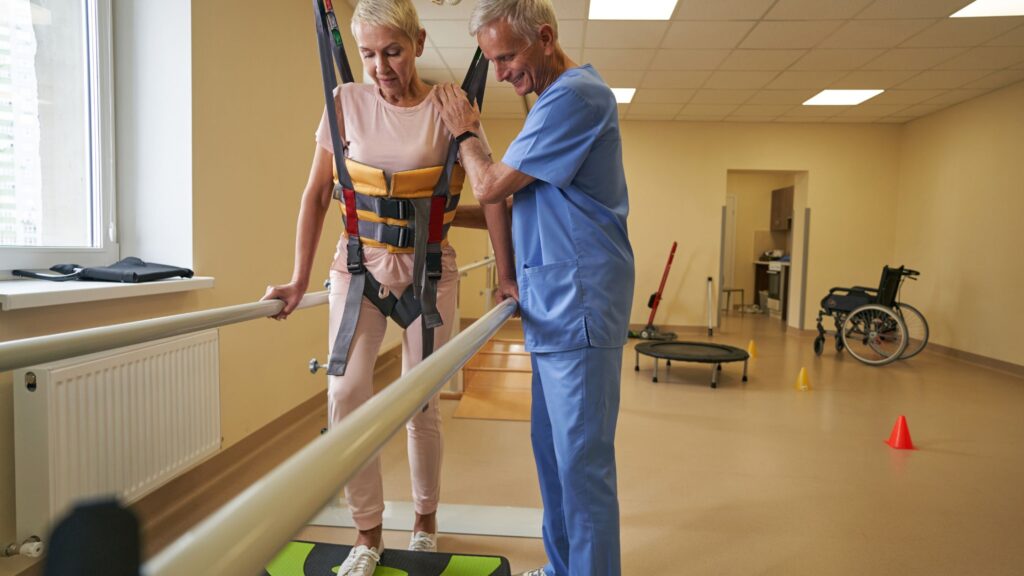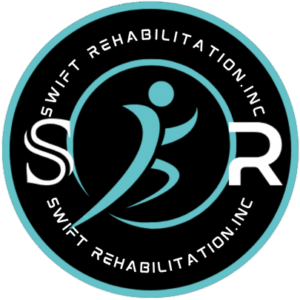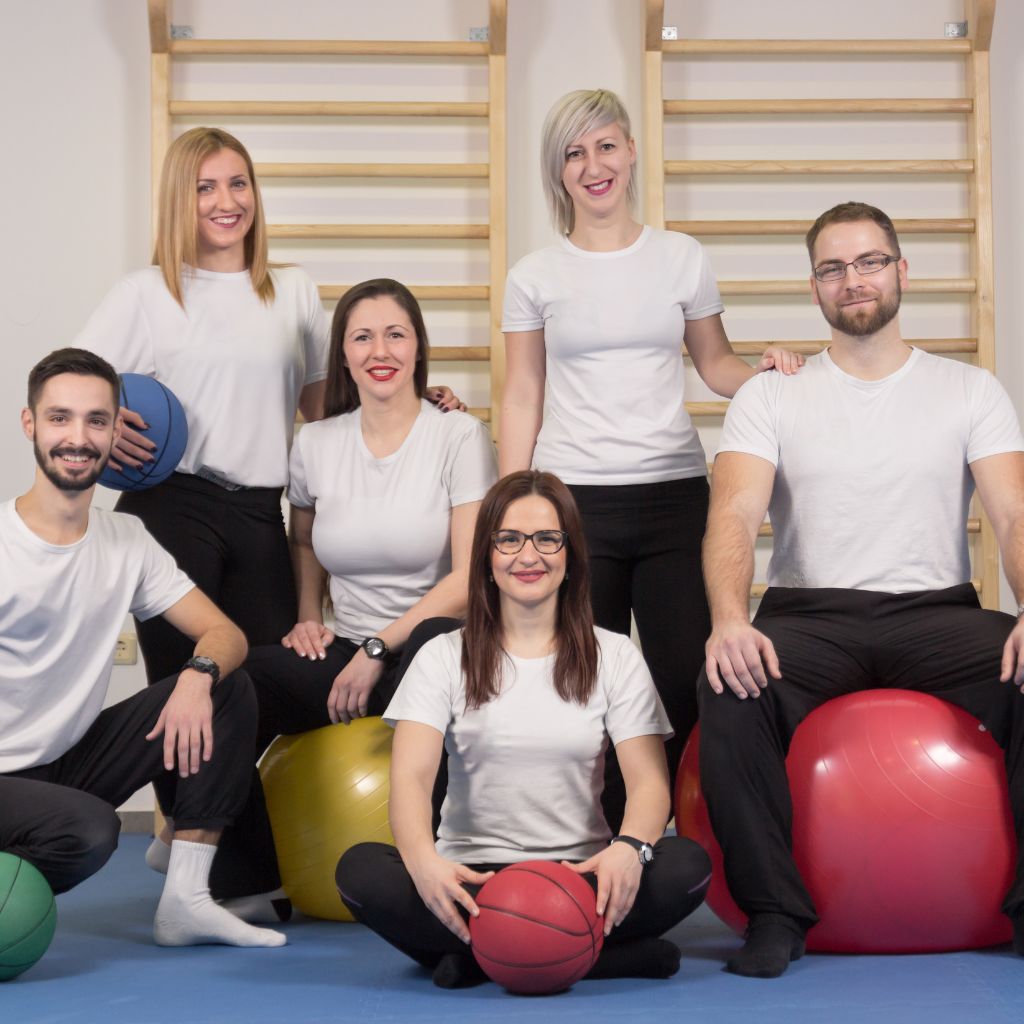Cognitive awareness describes how your brain notices, understands, and monitors thoughts, emotions, and actions in real time. In rehab, it helps people recognize limits, adjust strategies, and safely participate in everyday life. Swift Rehabilitation provides physical, occupational, and speech therapy that integrates cognitive goals into functional care, both in clinic and at home.

Why Cognitive Awareness Matters
Cognitive awareness is more than simply knowing what you are doing. It involves actively recognizing your strengths, weaknesses, and behaviors while performing tasks. Because awareness steers attention, memory, self-monitoring, and problem-solving, it directly influences safety, independence, and recovery speed.
For example, a person who lacks awareness after a brain injury may attempt to walk unassisted and fall, while someone with better awareness may recognize the risk and call for help. When awareness dips, people may miss hazards, overestimate abilities, or forget steps; however, with targeted practice, they can rebuild insight and improve their daily performance.
Conditions That Can Affect Awareness
Several health conditions can disrupt awareness pathways in the brain. Stroke survivors may lose insight into physical or cognitive limitations. Traumatic brain injury or concussion often affects attention and judgment. Neurodegenerative diseases such as Alzheimer’s or Parkinson’s can slowly reduce awareness of daily routines. Developmental conditions can also influence how people monitor themselves and respond to situations.
Moreover, temporary factors like pain, fatigue, certain medications, or stress may lower a person’s ability to stay fully aware. Since these factors can compound challenges, evidence-based cognitive rehabilitation addresses awareness with structured and individualized methods. Learn more about Physical Rehabilitation Center.
How Clinicians Assess Awareness
Therapists use several structured methods to evaluate awareness levels. These steps ensure they capture both self-perception and real-world behavior:
a) Initial Interviews and Questionnaires
Clinicians begin by asking patients about their daily challenges, goals, and perception of their own abilities. This step highlights any gaps between self-perception and actual performance.
b) Task-Based Observation
Patients are asked to complete simple or complex activities, such as cooking or writing. Therapists carefully observe how they plan, monitor, and correct mistakes during the task.
c) Standardized Cognitive Tests
Structured assessments measure specific skills like memory, attention, problem-solving, and self-monitoring, giving a clear picture of strengths and weaknesses.
d) Real-World Simulations
To ensure findings translate to daily life, clinicians use practical scenarios such as handling money, following directions, or preparing a schedule. These activities reveal how awareness functions in realistic environments.
e) Goal Setting and Feedback
Based on the results, therapists create measurable goals and provide immediate feedback. Families often receive guidance too, ensuring that strategies can be practiced both in therapy sessions and at home.

Treatment: Building Awareness and Everyday Skills
Treatment to improve awareness combines restorative techniques that rebuild brain function and compensatory methods that support immediate independence. Common approaches include:
- Metacognitive strategy training – Therapists help patients pause, plan, and reflect to recognize errors and improve decision-making.
- Attention and processing training – Structured exercises enhance focus and speed up thinking, preparing individuals for complex tasks.
- Memory supports – Notebooks, planners, and reminders help patients remember important steps and appointments.
- Executive-function coaching – Therapists help patients manage tasks and time effectively.
- Environmental modifications – Using labels and color coding simplifies home setups, enhancing independence and reducing confusion.
- OT and Speech therapy interventions – Therapists connect cognitive goals to activities for meaningful improvements.
At-home support that helps
Family involvement plays a critical role in strengthening awareness; therefore, a loved one can:
- Label steps of tasks, such as cooking or cleaning, to reduce errors.
- Break chores into shorter blocks to avoid fatigue and frustration.
- Encourage the use of one central planner for appointments, notes, and reminders, preventing information from being scattered.
- Maintain consistent routines so daily life feels predictable and easier to manage.
- Schedule focused activities at peak energy times, like mornings or early afternoons, when attention levels are highest.
- Limit distractions by keeping noise and clutter minimal, which makes self-monitoring easier.
- Support gradual practice by helping the person work on one new skill or habit each week, ensuring long-term retention.
These strategies not only improve carryover from therapy to daily life, but also boost confidence and reduce stress for both patients and families.
How Swift Rehabilitation supports your progress
Swift Rehabilitation serves Towson and Rosedale with outpatient and in-home Physical, Occupational, and Speech Therapy services. The team designs customized programs that integrate cognitive goals with physical recovery, ensuring progress in both body and mind.
Compassionate care, flexible scheduling, and professional expertise allow families to feel supported at every stage of rehabilitation. Patients can access therapy in clinics equipped with modern tools or choose home-based sessions for added comfort and convenience.
Swift Rehabilitation also emphasizes education, teaching families how to reinforce therapy strategies in daily routines. This personalized approach ensures lasting improvement and empowers individuals to regain independence.

Conclusion
Ultimately, if you still wonder about cognitive awareness, think of it as the internal compass that keeps decisions safe, timely, and effective. With structured therapy and consistent support, individuals can strengthen awareness and rebuild independence. For families seeking personalized guidance, Swift Rehabilitation offers tailored evaluation and treatment plans. At the same time, they continue to champion innovative, tech-enabled solutions that make cognitive support accessible to more people.
Frequently Asked Questions
1) What is cognitive awareness in simple terms?
It is the ability to recognize your thoughts, feelings, and actions in the moment and adjust them to fit the situation safely and effectively.
2) How do therapists improve awareness after stroke or TBI?
Therapists use strategies such as metacognitive coaching, attention training, memory tools, and environmental adjustments, always connected to meaningful daily goals.
3) How long does it take to see the actual results?
Progress depends on the condition and consistency of practice, but steady gains often appear when therapy and at-home support are maintained week after week.
4) Does Swift Rehabilitation address cognition, or only movement?
Swift Rehabilitation provides Occupational and Speech Therapy that incorporates cognitive treatment alongside physical rehabilitation, ensuring comprehensive care.




